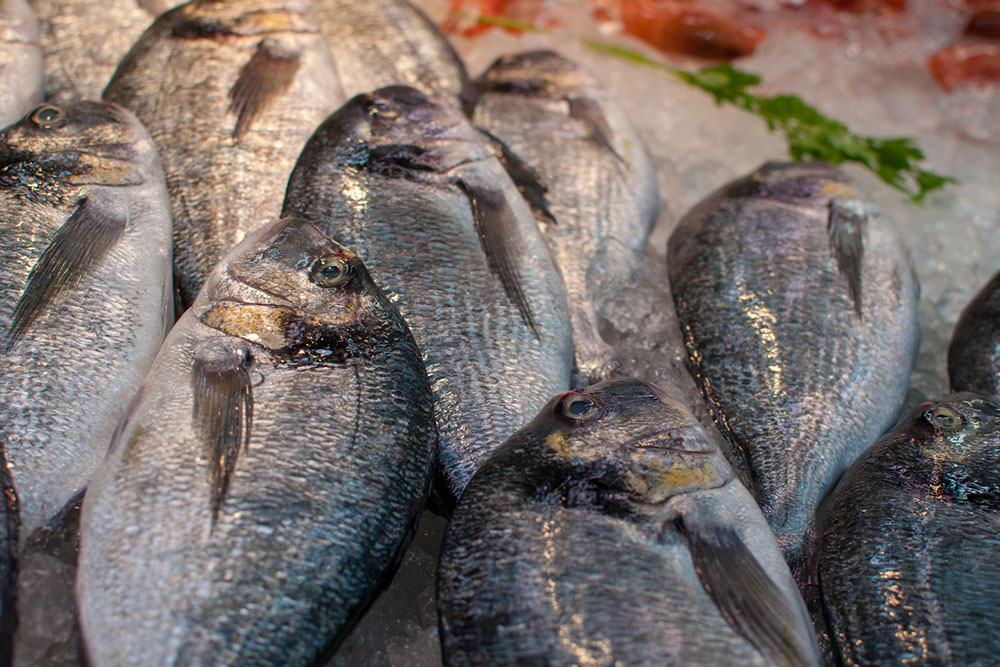
10 worst cancer-causing foods
People start developing cancer because of a combination of factors. Some of these factors are a lack of physical activity, ignoring visible symptoms when they first appear, other illnesses, being unknowingly exposed to carcinogens, certain lifestyle habits, and eating the wrong foods. That last factor is more of a contributing element to cancer than what many people may know about. To help readers know better, here are some of the biggest cancer-causing foods out there:
Salted fish
Salt can cause several health issues, especially for a person’s cardiovascular and circulatory health. Salt tends to absorb water from the body. So, excessive consumption of salty foods can lead to loss of fluidity in a person’s blood, causing circulation to become much more labored. Salted fish comes with nitrates that are used as preservative agents. These preservatives are used to boost the shelf life of fish.
Nitrates are one of the prime carcinogens. They can cause several different kinds of cancer. While a small concentration of nitrates tends to be mostly harmless, regular consumption causes a cumulative effect and can eventually result in malignancy.
Sugary drinks
Sugar has several inflammatory properties. Consuming sugar-heavy foods can cause inflammation in various areas of the body. From a cancer perspective, sugar-sweetened beverages significantly increase a person’s risk of developing cancer. These drinks do not have any nutritional value while also pumping the body with calories that seriously increase the risk blood sugar spikes. Excessive calorie consumption is known to cause multiple kinds of cancer, such as colorectal cancer, multiple myeloma, liver cancer, esophageal cancer, breast cancer, and endometrial cancer. From a cancer perspective, sugary and carbonated beverages are among the most dangerous foods.
Beef
Processed meat-based foods such as beef and pork contain elements that increase the risk of bowel cancer in people. Apart from beef, processed meat-based foods include ham, sausages, bacon, and salami. These foods are loaded with preservatives and chemicals that can be incredibly harmful to one’s body and cells. Chemicals such as nitrates and nitrites are often the primary preservatives in processed meat-based foods.
Processed foods are almost devoid of any redeemable qualities or quality health-enhancing nutrients. This is why, despite their good taste, such foods must be avoided to keep the risk of cancer at bay.
Charred meat
Processed meat is not the only meat-based food that can cause cancer. Charred food is also a significant contributor to cancer risk. When meats are cooked at high temperatures, especially over an open flame, they tend to produce cancer-causing substances such as heterocyclic aromatic amines (HAA) and PAHs. These substances can damage the DNA of consumers over time and lead to the development of cancer. Therefore, it is important to be mindful of the cooking methods used for meat, especially when it comes to grilling, pan-frying, or barbecuing, as these methods can increase the risk of cancer.
To avoid charring meat and making it carcinogenic, one can follow these tips:
- Avoiding longer cooking times.
- Continuously turning over meat when it is on a high heat source.
- Periodically removing charred portions of meat.
- Avoiding direct contact of meat with burning flames.
Dairy products
Although dairy is a healthy food, several medical studies have found that excessive consumption of milk, yogurt, and cheese can seriously increase the chances of a person developing prostate cancer. According to some studies, consuming dairy-based foods regularly increases levels of insulin-like growth factor 1 (IGF-1). This element increases the risk of prostate cancer for people. It tends to increase the proliferation and production of prostate cancer cells.
White bread
Another two edible elements that cause cancer are sugary foods and refined carbohydrates. Some of the foods that include these elements are white rice, sugary cereals, baked goods, sugar-sweetened beverages, and white bread. Foods with large concentrations of starch, refined carbs, and sugars can increase the risk of type-1 and type-2 diabetes. In both these conditions, the body undergoes inflammation and suffers oxidative stress. Refined carbohydrates also increase blood glucose levels, thereby increasing the risk of colorectal cancer in people. To avoid such outcomes, people can eat alternative foods such as brown rice, oats, whole-grain pasta, and whole-grain bread.
French fries
Like processed meats, fried foods regularly feature on multiple “worst foods” lists online. Fried foods such as French fries are often cooked at extremely high temperatures. This results in the formation of a compound called acrylamide. This compound extensively features in foods such as potato chips and French fries. Like nitrates, acrylamide has been found to be carcinogenic in nature. This element can extensively damage a person’s DNA and induce apoptosis (cell death). Due to these reasons, keeping the consumption of fried foods at a bare minimum is highly advisable.
Microwave popcorn
Microwaved popcorn is generally, if not always, packaged in specific bags and containers that are lined with a chemical that decomposes to form perfluorooctanoic acid (PFOA). This element has been known to significantly increase the risk of prostate cancer, liver cancer, and other malignancies. Some of the other harmful elements in microwaved popcorn are diacetyl, a compound that is present in artificial butter flavor. This element has been known to cause lung damage. This is why microwave popcorn is an avoidable cancer-causing food to keep oneself healthy.
Pasta
Pasta and other “white” foods like bagels, rice, and bread come with loads of refined carbohydrates with a high glycemic index (GI). Foods with a high GI have been linked to a 49 percent greater risk of developing lung cancer. Therefore, it is recommended to limit the intake of pasta and other “white” foods to reduce the risk of cancer.
Canned foods
Canned food is lined with bisphenol A (BPA), a chemical substance that can cause cancer in people. BPA tends to attach itself to estrogen receptors in a person’s body. That tends to cause cancer and other bodily issues in people. Therefore, people need to avoid canned foods at all costs to keep cancer at bay.


